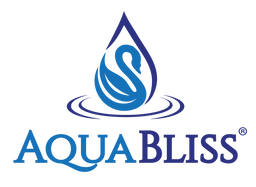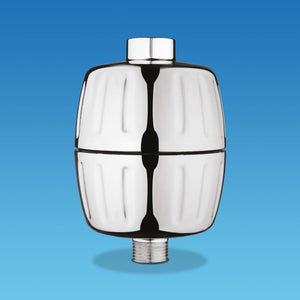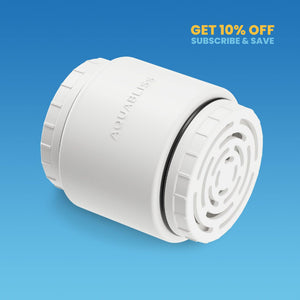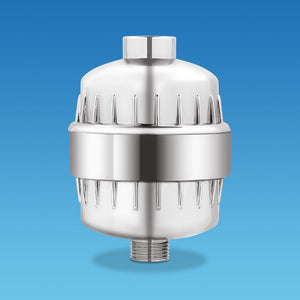Dealing with water that smells unpleasant, whether it's a rotten egg odor or a strong chlorine smell, can be frustrating and even concerning.
This guide will help you identify the cause of the foul odors in your water, whether it's due to your water heater, plumbing system, or water supply, and provide solutions to get rid of the smell for good.
Keep reading to find out how to restore your water to its fresh, clean state.
What Is That Smell?

Have you ever turned on the tap, only to be greeted by a foul odor, like rotten eggs? This unpleasant smell is often due to hydrogen sulfide gas or sulfur bacteria in your water supply.
While it’s not as dramatic as a garbage compactor on the Death Star, any smell coming from your tap water is far from ideal, especially when you're in the shower. Water should be pure and refreshing, not adding unpleasant odors.
Where Do Odors Come From?
There are numerous potential sources of the odor in your water. Let’s explore where these smells might be coming from and how you can get rid of them.
The One-Tap Problem
If you notice that the water smells from just one fixture or water supply line, the issue is likely isolated to that specific part of your plumbing system.
To identify the problem, try this:
- Fill a mug with cold water from the affected tap, then move away from the faucet and smell it.
- Repeat with hot water from the same outlet.
If the cold water smells fine but the hot water smells off, it could point to issues with your water heater. On the other hand, if both have a foul odor, the issue might be with the entire water system or plumbing.
In Hot Water: Smelly Water from the Heater
If you detect a rotten egg smell coming only from the hot water side, your hot water heater may be the culprit. This smell is often caused by sulfur bacteria interacting with a magnesium anode rod inside the hot water tank.
These bacteria produce hydrogen sulfide gas, which gives off that familiar rotten egg odor. To address this, consider raising the temperature of the water heater to at least 120°F to prevent bacterial growth.
Some people turn off their heaters when away, like at a summer cottage, which can make the hot water tank a breeding ground for sulfur bacteria. When you return, run the heater at a high temperature (over 140°F) to sterilize it.
For persistent issues, consult a plumber about replacing the magnesium rod with an aluminum rod.
When All of Your Water Stinks
If all your tap water has a foul odor, including both cold and hot water, the issue is likely with your water supply. Contaminants such as hydrogen sulfide, iron bacteria, and decaying organic matter can make your water smell.
In some cases, improper maintenance of water supply systems, septic systems, or irrigation systems can lead to foul odors. A common contaminant in municipal water is chlorine, used to prevent bacterial growth.
While chlorine is effective for killing bacteria and viruses, it can leave behind a chlorine odor, which many people find unpleasant. Luckily, chlorine odor disappears once the water is treated with an activated carbon filtration system or a carbon filter.
Health Risks of Contaminated Water
It’s important to address smelly water, as it can lead to several adverse health consequences. For instance, chlorine may irritate the skin and hair, causing dryness and irritation.
Additionally, foul odors from water supplies could be a sign of more serious contamination, such as a leaking fuel tank or sewage-like odors from a poorly located septic system.
These issues can introduce harmful bacteria and chemical contaminants into your water, posing risks to your health. If you notice a chemical contaminant smell, such as petroleum or sewage, contact your county health department immediately.
The Impact of Chlorine on Water Quality and Skin Health
While chlorine helps keep our drinking water safe, long-term exposure in the shower can be detrimental to your skin. Chlorine dries out the skin by reducing its ability to retain moisture, which can cause itchiness, irritation, and dry hair.
Over time, chlorine exposure can even lead to more severe issues, like premature hair color loss or asthma in sensitive individuals.
Removing Odors from Your Water
Fortunately, there are solutions to help you eliminate these odors. For general chlorine odor, an activated carbon filtration system is ideal for removing chlorine and other contaminants from your water.
If the odor persists, especially if it smells like rotten eggs or sulfur, you may need a more specialized system like a water softener or additional water treatments using chlorine bleach solutions or hydrogen peroxide.
If your water smells foul, you can also inspect your well or plumbing system for organic matter, surface drainage, or improperly located septic systems, which can lead to smelly water.
The Takeaway
A high-quality filtration system, such as an activated carbon filter, can help eliminate unpleasant smells and detoxify harmful contaminants from your water. At AquaBliss, we offer a range of filtration solutions designed to meet your needs, ensuring that your water is clean, fresh, and odor-free.
Don’t let your water’s odor compromise your comfort—explore our selection of water treatment products today.







